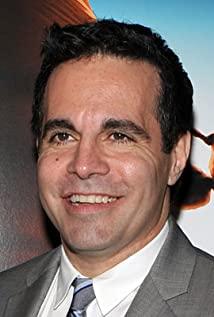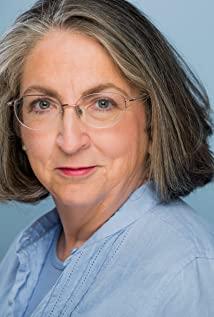After watching this drama, my first thought was: "I also want to have a daughter."
It is said that love is sacrifice and sacrifice. When it comes to family relationships, our evaluation of good parents is often how much they sacrificed for their children. But we have to admit that human nature is selfish. It is true that some people can achieve self-realization in giving, but there are too many people who hesitate and collapse in the relationship of continuous giving. What is affection? What's the best way to show affection? "Better Things" (Better Things) is a work about family. In fact, the main creators of this show are the famous Louis CK and Pamela Adlon. We've seen their sparkling collaboration as early as "Louis Isn't Easy." At the same time, the show is a semi-autobiographical work by Pamela Adlon. It tells the story of a middle-class single mother actress who takes care of her three daughters outside of work.
They all say "three women in one play", so what about "three daughters"? None of the three daughters in the play is worry-free: the eldest daughter Max is in puberty, falling in love and playing rebellion, which makes people worry; the second daughter, Frankie, breaks into the men's toilet, keeps her hair short, and keeps her mouth open and shut is equal to women's rights; The youngest daughter Duke seems to be well-behaved and clingy, but she has long been swearing while carrying her mother. Not to mention the hoarding, bizarre British mother who lives opposite the door. The life of the heroine Sam can be said to be the scene of a nuclear explosion every day. In the parent-child relationship created by many film and television works, the mother is always laborious but gentle and considerate, and the child is always well-behaved and sensible, and will correct her mistakes. At the end of the story, parents and children must embrace each other tightly and confess their true feelings. However, in real life, people are more inclined to be silent in the Cold War after a big fight, and it is even more difficult for adolescent children to bow their heads and admit their mistakes. In "Better Things", we can find that behind the three "bad" daughters, there is a "bad" mother Sam.
Sam's career was not smooth as a past actress. Being a mother makes her unable to be reckless when filming, and aging makes her no longer confident. We have seen too many funeral comedies these days. Sam's mourning was when he was sitting on the stairs thinking about the unfortunate days, but the thoughts on his mind were "Have you bought your daughter's stationery bag?" and "What are you going to cook for dinner?" This is the mourning of the middle-aged, the classic mourning of Louis CK. Unlike young people who will blow up when they encounter hard times, middle-aged people tend to live their lives without hysteria and enthusiasm. Such trivialities and undercurrents of calmness make people deeply appreciate the reality of life.
Sam really wasn't a good mother or a good daughter. At home and at work, she was always busy and restless. The most common in the film is the confrontation between her and the eldest daughter. The mutual scolding of the two is almost interspersed with the whole plot; she carries the child and has a date with a married man, and even secretly takes the condom in the eldest daughter's room; Apostate and masculine, she always deceives herself that "she's just a child"; she can't get along with her mother calmly, and she cancels her birthday trip with her because of a breakdown.
However, we have to admit that the heroine Sam loves her family deeply. She would accompany her younger daughter to sleep after an exhausting day; she would hug her eldest daughter when she was in love; she would panic and cry when her mother pretended to faint. The most touching thing is that when the eldest daughter was confused by the pressure of further education, Sam took her to the clothing store to try on a suit. We were amazed to see a coy and tender mood in this rebellious teenage girl as the eldest daughter smiled at her mother in the mirror. Sam may have made a lot of mistakes growing up as a child, but she was never absent, and she worked hard at everything.
The show is somewhat feminist. Careful people may find that the names of the heroine and three daughters (Sam, Max, Frankie and Duke) in the film are very neutral. But compared to the heroine who is self-improving in everything, her three daughters, including the second daughter who shouts for equality of women's rights every day, seem a little cowardly. They would yell, "Let Daddy handle it!" when the fire alarm went off, but the man even wanted to hide his move to the neighborhood because he didn't want to spend more time with them over the summer. A very classic scene in the play is Sam being invited to speak at a women's event. In this paragraph, Sam, who is also the main creator Pamela, is expressing his opinions freely. Some might hate the direct preaching, but the gushing emotions and razor-sharp arguments are enough to ignore it. "Life is great, even at its worst," she said.
Maybe everyone's understanding of family love is different. But after reading "Better Things", I believe we can all find a new interpretation of family love. Family affection is the hug after falling in love with each other, the understanding after the collapse, the support in the predicament, and the mutual growth of both parents and children.
View more about Better Things reviews











